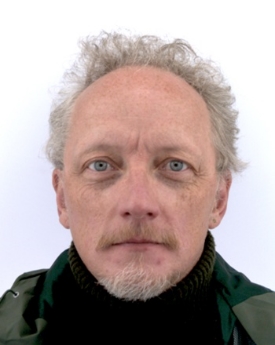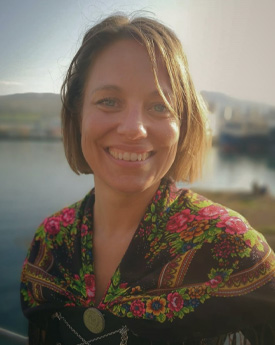Planetary and Social Thought: The Anthropocene Challenge to the Social Sciences
by Nigel Clark and Bron Szersyynski
This innovative book outlines ‘planetary social thought’: a transdisciplinary way of thinking social life with and through the Earth. Using a range of case studies, the book shows how familiar social processes can be radically recast when looked at through a planetary lens, revealing how the world-transforming powers of human social life have always depended on the forging of relations with the inhuman potentialities of our home planet.
Publisher's page: Wiley - Planetary and Social Thought
Energy and Rhythm: Rhythmanalysis for a Low Carbon Future
by Gordon Walker
This book sets out to energise Lefebvre’s rhythmanalysis. Social theory, thermodynamic thinking and diverse streams of energy-oriented research are brought together to trace how the climate crisis has the rhythmic patterning of big power energy systems at its core; and how transitioning to a just, low carbon future means transforming energy systems and our everyday dependencies on them into new rhythmic patterns and interrelations.
Support website: http://wp.lancs.ac.uk/energyandrhythm/
Too Hot to Handle: The democratic challenge of climate change
by Rebecca Willis
This book explores why climate is such a challenge for political systems, even when policy solutions exist. It argues that more democracy, not less, is needed to tackle the climate crisis, and suggests practical ways forward.
Publisher's page: To hot to handle
The Social Dynamics of Carbon Capture and Storage: understanding CCS representations, governance and innovation
edited by Nils Markusson, Simon Shackley and Benjamin Evar
Carbon capture and storage (CCS) has emerged rapidly as a crucial technological option for decarbonising electricity supply and mitigating climate change. Great hopes are being pinned on this new technology but it is also facing growing scepticism and criticism. This book is the first to bring together the full range of social and policy issues surrounding CCS shedding new light on this potentially vital technology and its future.
Publisher's page: Routledge - The Social Dynamics of Carbon Capture and Storage
Creative Methods in Human Geography
edited by Nadia Von Benzon, Mark Holton, Catherine Wilkinson and Samantha Wilkinson
Introducing a diverse range of innovative qualitative methods, this accessible book encourages experimenting with creative methods in human geography research projects. With chapters written by leading experts, this book offers straightforward advice on how to approach every step of the research process, from planning and organisation to writing up and disseminating research.
Publisher's page: Sage - Creative Methods in Human Geography
Supporting blog post: creative methods for supporting social science students in qualitative remote research
Geographical Research with Vulnerable Groups: Re-examining Methodological and Ethical Process
edited by Nadia Von Benzon and Lorraine Van Blerk
Drawing on varied expertise from specialisms across the sub-disciplines of social and cultural geography, this book seeks to interrogate what it is to do research with people widely considered to be vulnerable. Written from an emancipatory standpoint, this book addresses the ethical and practical challenges that face researchers working with marginalised people.
Publisher's page: Routledge - Geographical Research with Vulnerable Groups
Intersectionality and Difference in Childhood and Youth: Global Perspectives
edited by Nadia Von Benzon and Catherine Wilkinson
This book explores the alternative experiences of children and young people whose everyday lives contradict ideas and ideals of normalcy from the local to the global context. The young lives foregrounded in this volume include the experiences of transnational families, children in ethnic minority communities, street-living young people, disabled children, child soldiers, victims of abuse, politically active young people, working children and those engaging with alternative education.
Publisher's page: Routledge - Intersectionality and Difference in Childhood and Youth
Demanding Energy: Space, Time and Change
edited by Allison Hui, Rosie Day and Gordon Walker
This book critically engages with an important but rarely-asked question: what is energy for? This starting point foregrounds the diverse social processes implicated in the making of energy demand and how these change over time to shape the past patterns, present dynamics and future trajectories of energy use.
Book online: https://demandingenergy.wordpress.com/
Environmental Justice: Concepts, Evidence and Politics
by Gordon Walker
This book provides a wide-ranging analysis of the rapidly evolving field of environmental justice research and activism, with compelling examples of the processes involved in producing inequalities and the challenges faced in advancing the interests of the disadvantaged. It provides a critical framework for understanding environmental justice in various spatial and political contexts.
Publisher's page: Routledge - Environmental Justice
Life Adrift: Climate Change, Migration, Critique
edited by Andrew Baldwin and Giovanni Bettini
This book provides a collection of essays from across the interpretive social sciences and humanities which treats climate change and migration as a relation that demands theoretical and historical explanation, rather than a problem requiring technical and expert solutions. The result is a unique collection, offering readers a means for reconceptualising migration and environmental changes as a site of politics and of political possibility.
Publisher's page: Rowman & Littlefield - Life Adrift


-1.jpg)












.jpg)
-1.jpg)








